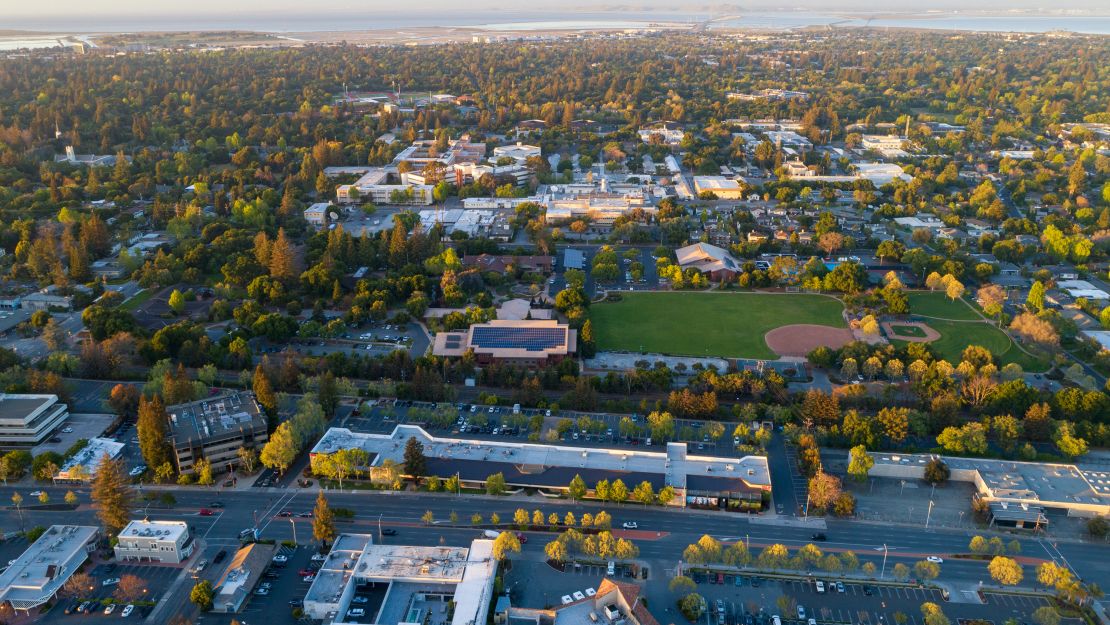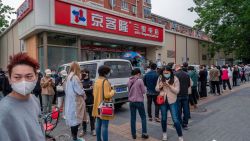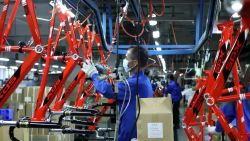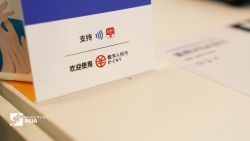China may be in the middle of a tech battle with the United States, but that hasn’t stopped some of its biggest companies from expanding their presence in Silicon Valley.
Tencent (TCEHY) and ByteDance have research centers mere steps away from Stanford University. A few miles east, on the 101 highway, lie the offices of Alibaba (BABA), Baidu (BIDU) and Didi Chuxing.
These internet companies dominate in China, where they are pushing innovation in social media, online shopping and self-driving cars. But their presence in Silicon Valley underscores how Chinese tech heavyweights still need American know-how to stay competitive.
“US tech companies are still way ahead of Chinese companies,” said James Lewis, director of the Technology Policy Program at the Center for Strategic and International Studies in Washington.
“Not to say Chinese companies aren’t strong in innovation, but it’s still the case that if you want the best stuff, you have to go to the United States,” he said.
China has ambitious plans to become a global tech leader in the next decade, pledging to invest hundreds of billions of dollars in emerging technologies like artificial intelligence, autonomous vehicles and supercomputing.
But the pool of top tech talent is smaller in China than in the United States, which still attracts ambitious engineers and entrepreneurs from around the world.
By hanging a shingle out in Silicon Valley, Chinese internet firms have easier access to top graduates and researchers from places like Stanford and the California Institute of Technology — as well as other highly regarded US colleges. They are also in a better position to compete with American rivals like Google (GOOGL), Facebook (FB) and Uber, who are also trying to hire the best and the brightest.
“It’s a global hunt for talent,” Lewis said. “A good tech company goes where the talent is.”
Here’s a look at what some of China’s largest internet companies are doing in the heart of the US tech industry.
Alibaba
China’s biggest e-commerce company employs about 350 people across three offices in Silicon Valley. It opened its first one in Santa Clara in 2000.
That office is focused on persuading American businesses to sell goods on Alibaba’s various online shopping platforms, and on investment in US companies. A hub in San Mateo works on business development and engineering for the company’s cloud computing business and for Alipay, the vast online payments platform run by Alibaba affiliate Ant Financial.
Alipay is slowly being accepted at US hotels and retailers, cashing in on the growing number of Chinese tourists who travel to the United States every year. But Ant Financial’s effort to grow faster by buying American money transfer service MoneyGram was shot down by US regulators last year.
This year, Alibaba extended its footprint in the Bay Area with a new lab focusing on chip technology and artificial intelligence in Sunnyvale, the home of Yahoo. It was part of a $15 billion pledge Alibaba made last year to establish research facilities focused on emerging technologies in a handful of cities around the world.
Baidu
The company behind China’s leading search engine is heavily invested in artificial intelligence. Baidu opened its first office in Sunnyvale in 2011 and added a major research and development center there last year.
The company employs about 200 people in Silicon Valley, working on artificial intelligence applications like simultaneous translation, robotics and autonomous driving.
Baidu was one of the first companies to apply for a license to test driverless cars in California, getting approval in September 2016.
It also has a dedicated AI research lab with scientists and researchers exploring fields like data mining, machine learning and computer vision.
ByteDance
ByteDance is one of the biggest, buzziest internet firms in China at the moment.
Its suite of addictive short-video and news apps driven by predictive AI algorithms has put it among the world’s top startups. It was valued at $75 billion in a November funding round, according to CB Insights.
Unlike other Chinese tech companies, ByteDance has a social media platform that is gaining traction in the United States. TikTok is a short video app that has powered up the charts recently, ranking as the No. 1 free app in Apple’s US App Store in October.
The company set up an office earlier this year in Menlo Park, where Facebook is based.
Founded by coding whiz Zhang Yiming, ByteDance’s whole business is built around using AI to try to give people the videos and articles they want to see. Its team of more than 50 people in Silicon Valley is mainly focused on developing features that can be deployed on the company’s various apps quickly.

Didi Chuxing
Didi Chuxing is China’s dominant ride-hailing company. It drove Uber out of the country in 2016 after a costly battle for customers.
Valued at $56 billion, Didi is now challenging Uber in other markets around the world. The Chinese company’s Silicon Valley team works on product development and safety technology for its operations in Brazil, Mexico, Australia and Japan, according to a company spokeswoman.
Like Baidu, Didi also has a permit to test self-driving cars in California, which it received in May.
Didi Labs opened last year in Mountain View, near Google’s (GOOGL) sprawling campus, and now employs more than 100 people.
Tencent
Gaming and social media giant Tencent was among the first Chinese internet companies to make a move in Silicon Valley, setting up shop there in 2007.
The company’s Palo Alto office is close to the headquarters of Facebook, the US tech company to which it’s often compared.
Tencent is a major investor in other tech companies, including big US names like Tesla (TSLA) and Snap (SNAP).
The company, whose messaging app WeChat has more than a billion users, is reportedly building a new Palo Alto facility that can house 250 people. Tencent declined to comment for this story.
Besides mobile gaming, artificial intelligence and cloud services, its California teams are gearing up to work on autonomous vehicles, according to jobs advertised on LinkedIn this month.






























